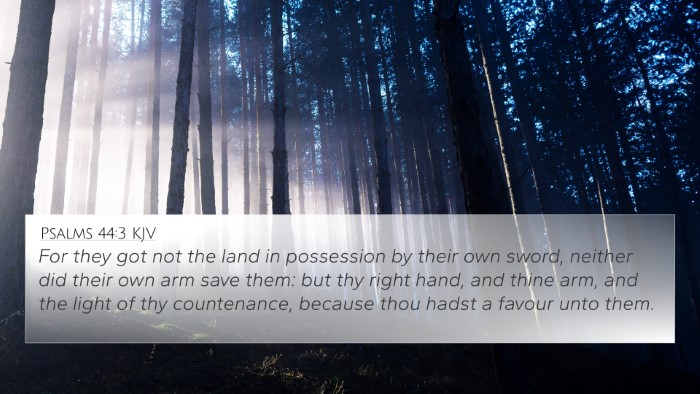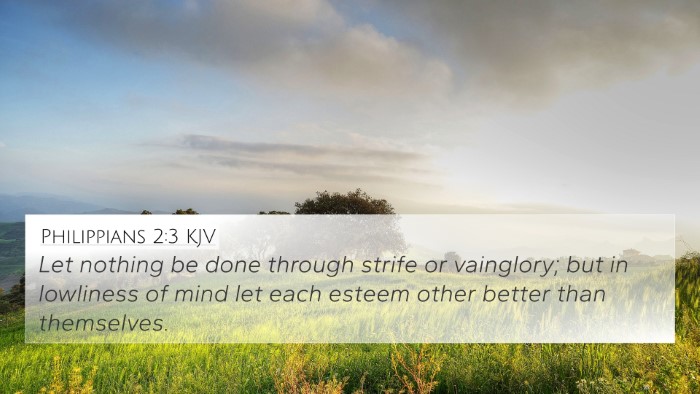Understanding Judges 8:3
Judges 8:3: "And the men of Ephraim said unto him, Why hast thou served us thus, that thou calledst us not, when thou wentest to fight with the Midianites? And they did chide with him sharply."
Overview of the Verse
The verse highlights a moment of frustration and discord among the Israelite tribes, specifically between the Ephraimites and Gideon. The context shows Gideon’s successful leadership and military victory, yet the reaction from the tribe of Ephraim indicates a lack of unity and appreciation for shared deliverance.
Interpretation and Meaning
This verse illustrates the challenges of leadership and the fragility of communal relationships, even among those who share a common faith and purpose. Below are insights drawn from public domain commentaries:
-
Matthew Henry:
Henry emphasizes the nature of human pride and jealousy that can surface even after divine victories. The Ephraimites, feeling overlooked, express their displeasure to Gideon. This encounter illustrates how joy and success can quickly turn to strife if not handled with humility.
-
Albert Barnes:
Barnes notes that the Ephraimites’ grievances were somewhat self-centered, as they questioned why they were not summoned to participate in the battles. This highlights their desire for recognition and importance in the eyes of Gideon and the community, underscoring the human tendency to seek glory.
-
Adam Clarke:
Clarke adds that the sharpness of the Ephraimites' rebuke towards Gideon reveals a deeper issue of tribal rivalry and ego. Rather than celebrating the victory, they became embroiled in petty disputes, showcasing the critical need for unity in leadership and community during times of success.
Cross-References to Judges 8:3
Judges 8:3 connects with several biblical themes and verses that provide greater context and understanding:
- Judges 6:34-35: The calling of Gideon and the initial gathering of Israelite tribes.
- Judges 7:24-25: Gideon’s pursuit of the Midianites and earlier mentions of Ephraim’s involvement.
- Philippians 2:3-4: A New Testament reflection on humility and valuing others above oneself, relevant in examining Gideon’s response.
- 1 Corinthians 1:10: Paul’s exhortation to unity, paralleling the discord among the tribes of Israel.
- Matthew 20:26-27: Jesus teaches about servanthood, contrasting with the tribal leaders' desire for recognition.
- Romans 12:10: A call to honor one another, reminding believers of the importance of community and support.
- Galatians 5:15: A warning against biting and devouring one another, connecting with the Ephraimites’ sharp words.
Thematic Insights and Applications
This verse invites reflection on several key themes:
-
Community and Recognition:
The desire for acknowledgement can lead to conflict. It is essential to cultivate an attitude that prioritizes teamwork over personal accolades.
-
The Dynamics of Leadership:
Leadership often requires navigating complexities within a group. Gideon's story exemplifies this struggle, where miscommunication can escalate tensions.
-
Spiritual Unity:
Believers are encouraged to resolve disputes swiftly and maintain a spirit of unity, reflecting on how the Ephraimites' approach led to discontent.
Conclusion
Judges 8:3 serves as both a historical account and a lesson for contemporary faith communities. It encourages an examination of interpersonal dynamics and the continuous need for mutual respect and understanding in collective spiritual endeavors. The insights gained from this verse help highlight the importance of collaboration and the dangers of discord following achievements.
Further Study Tools
Utilizing bible concordance and bible cross-reference guides can enhance your understanding of such verses and their connections.
Related Keywords
This reflection utilizes various related keywords to enhance your study:
- Bible verse connections
- Bible verse parallels
- Cross-referencing Biblical texts
- Comparative Bible verse analysis
As you explore the rich tapestry of scripture and its verses, consider how the themes and lessons of Judges 8:3 apply to your life and relationships within your community.















